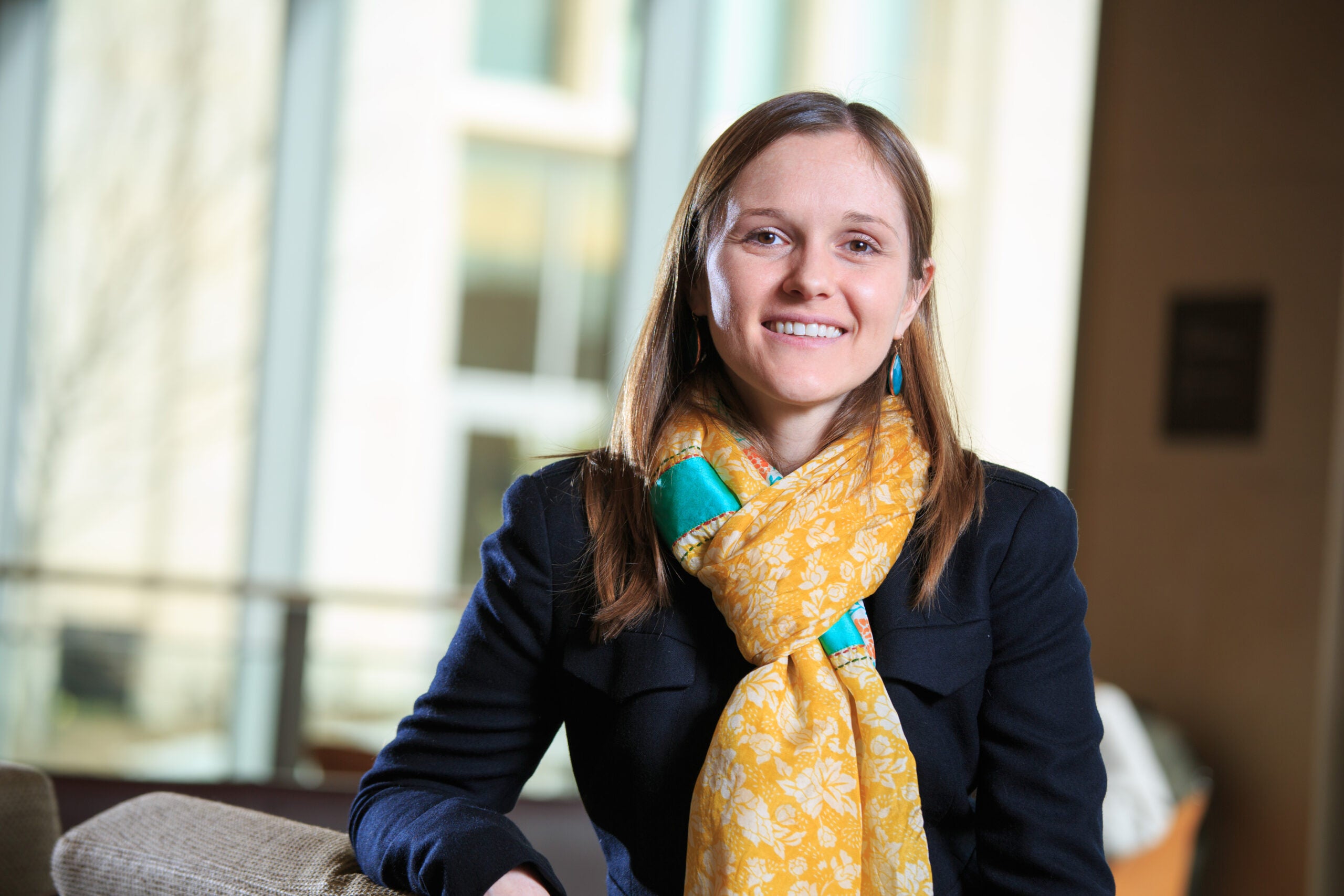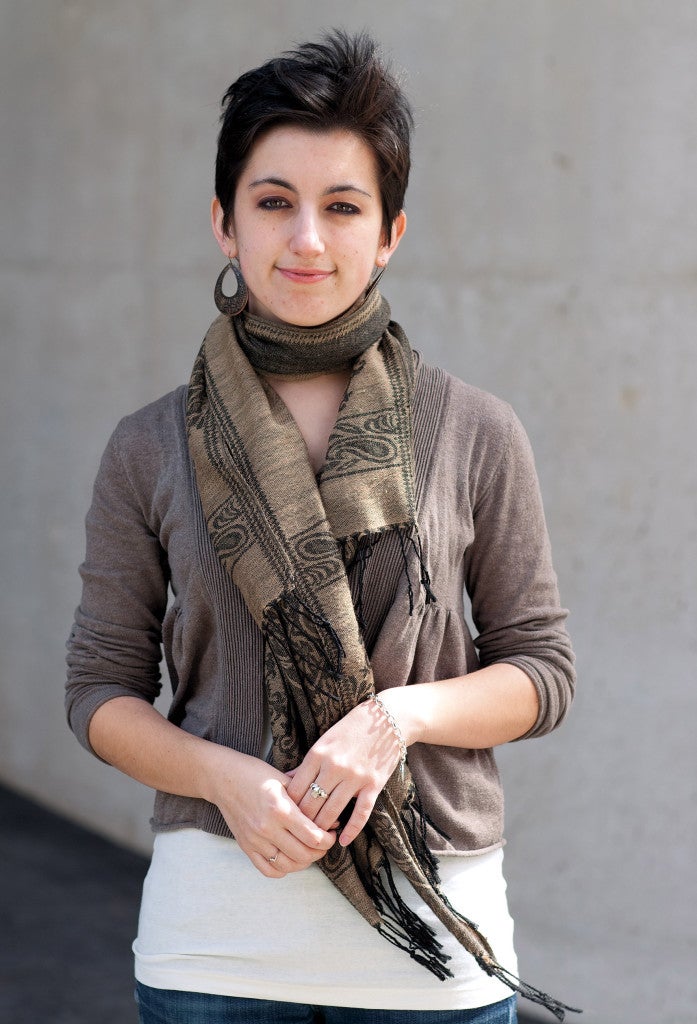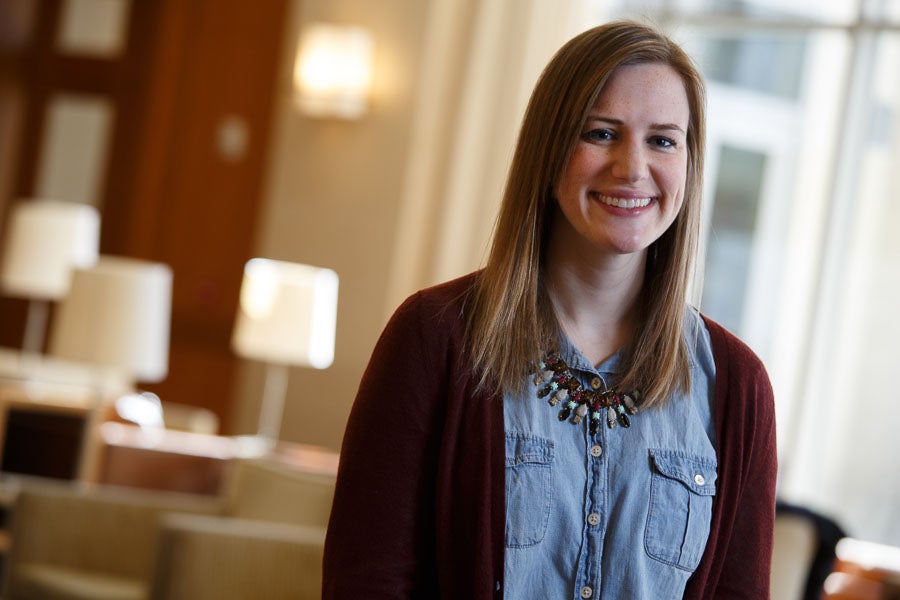Margaret Holden ’14 – came to HLS to study environmental law and jumped right in as a 1L, joining Richard Lazarus’ reading group on the Deepwater Horizon oil spill and both the Environmental Law Society (ELS) and the Environmental Law Review (ELR). The summer after her 1L year, she worked at the Department of Justice in Washington, D.C. in the Environmental Crimes Section. As a 2L, she was elected co-president of the ELS, served as a research assistant for both Lazarus and Kate Konschnik, director of the ELP Policy Initiative, and during J-term, worked on a fracking project in the clinic. That summer she worked at the DC office of the Natural Resources Defense Council. As a 3L, she enrolled again in the clinic and was elected Editor-in-Chief of the Environmental Law Review. Holden traveled to India this past J-term to research a paper on the solar industry. Next year, she will be clerking for the DC Court of Appeals, then working in environmental policy with a focus on climate and energy issues.
Says Holden: “In terms of support, it’s been incredible. The clinic and classes are really great, and the faculty are so supportive and connected — they’ve really helped me to do everything I’ve wanted to do. Working at DOJ and NRDC were my dream summer internships, and the faculty recommendations and experience I’ve had with ELP definitely enabled me to get them.”
“One of the projects that I worked on for the clinic evaluated whether FracFocus, a voluntary chemical disclosure registry for fracking projects, was an adequate regulatory tool. We found major shortcomings with the registry, and published a report containing our findings that was distributed to relevant stakeholders and picked up in several media outlets.”

Genevieve Parshalle ’15 – is in a joint degree program at the Harvard Kennedy School, and matriculated at HLS after working at the National Wildlife Federation and the Natural Resources Defense Council. After her 1L year, Parshalle worked in the California Attorney General’s office in the Environment Section; last summer, she worked for the NRDC in San Francisco. In the fall, she worked on fracking issues in the clinic, and over J-term, she took a course in natural resources. This spring, she is heavily involved in organizing the ELS’s symposium, which, in recognition of the 20th anniversary of President Clinton’s Executive Order on Environmental Justice, is “Environmental Justice: Where Are We Now?” She was recently elected Editor-in-Chief of the Harvard Environmental Law Review.
Says Parshalle: “I think by far most outstanding thing about the Environmental Law Program here are the professors and the students. If you look at professor evaluations, Jody Freeman and Richard Lazarus have outstanding evaluations, some of the highest of all the faculty I’ve seen. Students sign up to take environmental law because they’ve heard such great things about the faculty, even if they have no interest in environmental law.”
Matthew Littleton ’10, HKS ’10 – works in the U.S. Department of Justice Appellate Section, in the environmental division, his “dream job,” which grew out of a summer internship in that office after his 2L year. As a 2L, he did clinical work at the Conservation Law Foundation in Boston, working on Cape Wind litigation, and took Richard Lazarus’ course in Advanced Environmental Law, which focused in part on the effect of navy sonar on whales; these two experiences sealed his decision to go into the field. As a 3L, Littleton spent his J-term in a clinical placement at the NRDC in San Francisco, then the Semester in Washington clinic, working for Jody Freeman at the White House in the Office of Energy and Climate Change, focusing on environmental law and energy policy issues.
Ltlleton says: “I may very well have not ended up doing environmental law if I had gone somewhere else, so HLS had a profound influence on my career choice. I don’t think it’s an understatement to say it really launched my career because of the classes and the range of work in the clinics, and Professors Lazarus, Freeman and Jacobs have been great mentors.”
“The program grew pretty dramatically in the four years I was there. I know Professor Freeman put a lot of time into that. By the end of my time there, there were a lot more brown bags and conferences with people coming in to talk about environmental issues. I worked with Wendy [Jacobs] on a carbon capture sequestration paper for a conference. There were a lot of opportunities for that kind of thing.”

Rachel Heron ’12 – just started a two-year Beagle/HLS Fellowship at the Natural Resources Defense Council in Washington, D.C., where she’s on the small litigation team that includes a number of other HLS alumni. She is currently working on a longstanding case involving mercury pollution of the Penobscot River in Maine. At HLS, she was heavily involved in all aspects of the ELP, from the related student journal and student group to working for Freeman as a research assistant, and, as a 3L, as the program’s Environmental Fellow. Heron was enrolled in the clinic for three semesters, and worked as an assistant for Wendy Jacobs there. As a 2L, she presented at a conference on fracking issues in West Virginia related to an article (published in the Buffalo Environmental Law Journal) that she co-wrote with the clinic’s staff attorney, Shaun Goho and fellow, Justin DuClos. As a 3L in the clinic, Heron argued a summary judgment motion before an administrative judge in Massachusetts, supporting efforts to expand solar installation.
Says Heron: “Delivering oral argument before the state electricians’ board on behalf of a solar energy installer was the highlight of my clinical work at HLS. For the hours the argument lasted, it was up to me to explain why, legally, our client and other solar energy installers should be able to continue their work in the state without penalty. That was an incredible feeling to experience so early in a legal career.”
